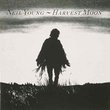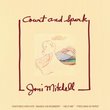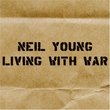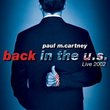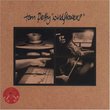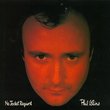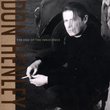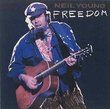| All Artists: Paul McCartney, Carl Davis, Ian Tracey, Sally Burgess, Royal Liverpool Philharmonic Orchestra, Kiri Te Kanawa, Jerry Hadley, Jeremy Budd Title: Paul McCartney's Liverpool Oratorio Members Wishing: 0 Total Copies: 0 Label: EMI Classics Release Date: 10/11/1991 Genres: Rock, Classical Style: Opera & Classical Vocal Number of Discs: 2 SwapaCD Credits: 2 UPCs: 077775437126, 077775437157 |
Search - Paul McCartney, Carl Davis, Ian Tracey :: Paul McCartney's Liverpool Oratorio
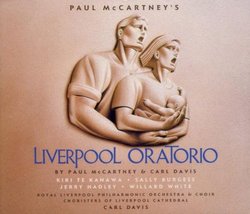 | Paul McCartney, Carl Davis, Ian Tracey Paul McCartney's Liverpool Oratorio Genres: Rock, Classical
|
Larger Image |
CD DetailsSimilar CDsSimilarly Requested CDs
|
CD ReviewsThe perfect link between pop and classical music Michel Laverdière atma@dsuper.net | Montréal (Québec) | 09/25/1998 (5 out of 5 stars) "I will always remember the day I watched the premiere of Sir Paul McCartney's Liverpool Oratorio on PBS. Of course I was a Beatle fan since the early '60s, indeed I followed Paul's career long after The Beatles' split. But one of the greatest joy was to witness this natural artistic evolution. Having myself followed the intricaties of pop music from the early Beatles to Tyrannosaurus Rex and Police, from Jimi Hendrix to Amazing Blondel and Steely Dan, from Cream to Bob Dylan and Sarah McClauhclan, from Tim Buckley to Frank Zappa and Manhattan Transfer, and the list goes on and on... one only wishes to take rest after 30 years of music exploration. What more soothing than getting back to a little classical music. And suddenly realizing that your very first idol does the same, goes even further and compose an oratorio starring Dame Kiri Te Kanawa, Jerry Hadley, Sally Burgess and Willard White with the help of conductor and composer Carl Davis. And all through this most impressive work the music breathes with freshness and wonderful melodies without neglecting the orchestra and choirs' possibilities. Pop or 'classical', Sir Paul McCartney is certainly one of 20th Century's most prominent composers. "Not for ourselves, but for the whole world were we born. And we were born in Liverpool..." Paul McCartney" Wonderfully interesting work by McCartney Luke Ma | Santa Barbara, CA | 02/23/2000 (5 out of 5 stars) "I have sung this work as part of a performance (parts of it) and it is an interesting piece indeed. While the melodic lines and musical styles may not be extremely innovative, they are nevertheless charming. The choral backdrop is also highly appropriate to the subject matter and while I am biased, the use of different vocal ranges, for example the boys' choir, really adds to the piece. For fans of McCartney, this is a wonderful buy. It gives listeners a chance to a different side of McCartney's talent." The second star is for effort R. L. MILLER | FT LAUDERDALE FL USA | 06/11/2005 (2 out of 5 stars) "This man's been playing Silly Love Songs ever since the contrast between that and the late John Lennon's pre-punk ethos formed the nucleus of the Beatles. But you have to remember that the main reason this freshman effort at symphonic music reached the mass market at all was because McCartney had made his mark many years ago. Already being famous helps, believe me. The arrangements are courtesy of Sir Paul laying out the basic threads using MIDI computer sequencing, at which point an arranger steps in and transcribes the result into real orchestral parts. And the libretto here are more than just a tad weak. One scene deals with a quarrel between Our Hero and his newly-pregnant wife. He makes that one statement in such situations that one regrets as soon as he says it, and gets this response;
Wife: "Right!" (dramatic rchestral hit) Wife: "I'm off!" (repeat of same chord) Wife: (spoken) "And by the way, you're going to be a father." And she promptly storms out into the street and gets hit by a car. Oh buh-rother! Unless I miss my guess, operatic work is not McCartney's long suit. Aparently that occurred to him as well, because his followup work is "The Standing Stones", a much stronger work that is instrumental. If you're a follower of Paul as "the cute one" of the Beatles, both of these works will be but pieces in a collection. If you're curious about Sir Paul's musical visions, you're better off with the later work. " |

 Track Listings (24) - Disc #1
Track Listings (24) - Disc #1
